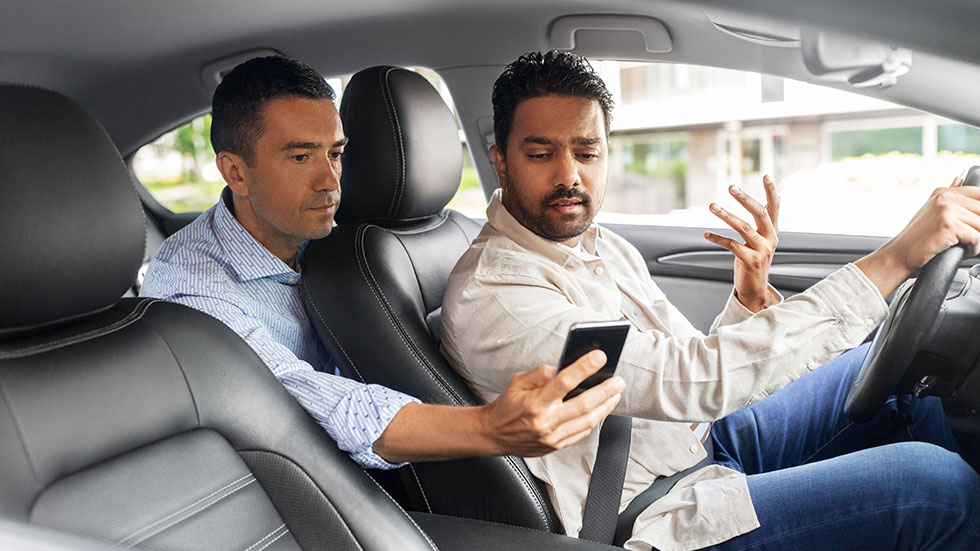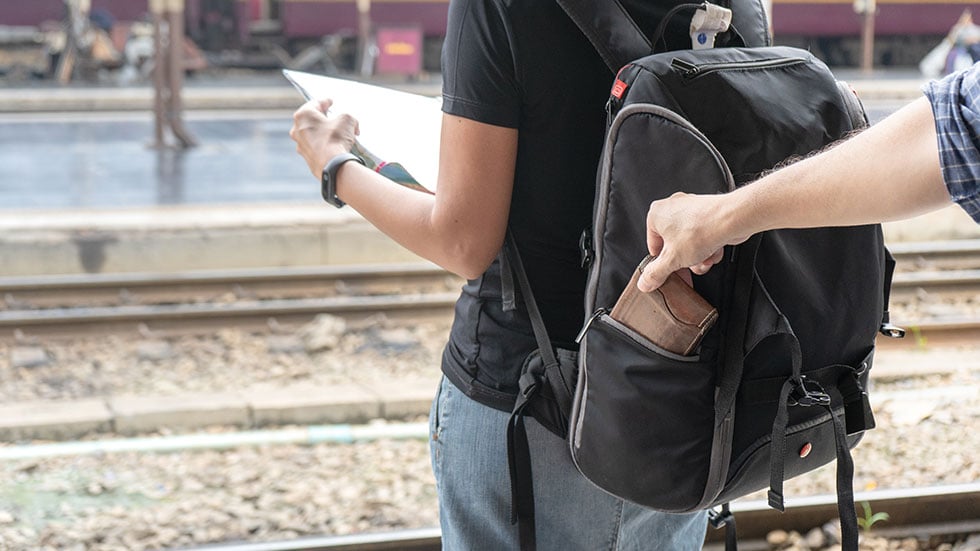
The moment you realize you've been duped by a travel scam, the joy of your journey quickly fades, replaced by panic, anger, sadness, frustration, and fear—emotions no one expects on vacation.
Unfortunately, travelers are easy targets as they navigate new environments, juggle tight schedules, carry extra cash, and let their guard down in the excitement of discovery. Scammers know this, and their tactics have become increasingly sophisticated.
Prevention starts with awareness and preparation. Just as you thoughtfully plan your itinerary and choose your vacation wardrobe, take time to learn about—and stay alert to—these common travel scams.

Scammers posing as travel professionals
The scam can begin before you even take that hard-earned journey. The American Society of Travel Advisors reports a rise in travel scammers posing as travel advisors. These thieves swindle thousands from travelers, even selling fake cruises and then going on the trips themselves.
Solution: Work with a trusted AAA Travel Advisor for peace-of-mind guidance. If you’re DIY booking online, research the company, and make sure any transactions are made through a secure website with “HTTPS” in the URL.

Tech-savvy scams
Travel scams have evolved from pickpockets on the streets to digital pickpockets. Hackers now use sophisticated methods to snatch your personal data while you’re on the go.
- Juice jacking: Public charging stations at airports, hotels, and coffee shops can be a target for juice jacking, a cybersecurity threat where hackers install malware to steal your data.
Solution: Carry your own portable charger or external battery.
- Malicious Wi-Fi: Hackers often set up fake public Wi-Fi networks that mimic legitimate hotspots in airports, hotels, and cafes, allowing them to intercept your personal information.
Solution: Confirm network names with staff, and disable automatic Wi-Fi and Bluetooth connections. Also consider using a VPN, which creates a secure, encrypted connection to protect your data while traveling.
- Fake QR codes: Scammers will place fake QR codes on posters and pamphlets touting tour offers and deals. Scanning these can lead to fraudulent websites that steal personal data or install malware.
Solution: Always check the source before scanning any QR code.

Money scams
Even the most experienced travelers can fall victim to money-related scams if they’re not vigilant. While you may already know to keep your cash and cards hidden, there are less obvious threats to be aware of. Here are some common scams and how to protect yourself.
- Card skimming at ATMs: Thieves place skimmers on ATMs or card readers to capture your details and PIN, stealing money from your account.
Solution: Use ATMs only in well-lit and secure areas, such as inside of banks.
- RFID theft: Many travelers carry credit cards equipped with RFID (Radio Frequency Identification) chips. This allows for easy tap payments, but they can be scanned wirelessly by thieves.
Solution: Use RFID-blocking wallets or sleeves to protect your cards.
- Fake currency. When paying by cash, dishonest vendors or fraudulent currency exchanges might give you incorrect change or counterfeit bills.
Solution: Familiarize yourself with local currency, pay close attention when receiving change, and exchange money only at trusted locations.
- Inflated bills. Local restaurants, bars, hotels, and drivers might tack on hidden fees to your final bill.
Solution: Agree on rates up front, and double-check your final bill carefully.

Pickpocket and street scams
Pickpocketing is a longstanding travel problem, with criminals working in teams to distract and steal. Pickpockets will distract you by bumping into you, spilling something on you, engaging in casual conversation, asking you to sign a petition, offering to take your photo, or playing other tricks on you.
Solution: To avoid pickpockets and street scams, stay vigilant in crowded areas, keep valuables close to your body securely (e.g., crossbody bags or money belts you can position in front), avoid displaying flashy items, and be aware of distractions. If approached, offer a firm “NO” instead of engaging.

Transportation scams
Don’t be taken by taxi drivers who don’t turn on the meter or claim additional fees for luggage or certain destinations.
Solution: Always confirm the fare with the driver before getting into the vehicle, or use apps or services with set pricing that’s transparent.
Tour and ticket scams
Scammers will sell counterfeit tickets for popular attractions, sporting events, and concerts that may be the focal point of a trip.
Solution: Buy tickets only from official sources, verified resellers, or through your hotel concierge. AAA also sells AAA member-discounted tickets to major attractions and theme parks, sporting events, and live concerts. Avoid street vendors or sellers on social media, and never pay via wire transfer or untraceable apps.
Arm yourself with knowledge
- Before traveling, search for common scams at your destination. For example, Googling “travel scam Paris” can provide useful tips from other travelers.
- Joining a Facebook group for your travel destination can help you stay informed and avoid potential pitfalls, too.
- Register for the Smart Traveler Enrollment Program (STEP). It’s a free service that allows US citizens to register with their nearest embassy while abroad, providing safety alerts and crucial support if something goes wrong—like helping replace a lost or stolen passport.
Armed with this information, you'll not only feel more confident but also be prepared to spot and avoid travel scams before they ruin your trip. And remember, trusting your instincts is one of the best defenses—if something feels off, it probably is. A little preparation goes a long way, ensuring you can focus on what really matters: enjoying your journey with peace of mind.

